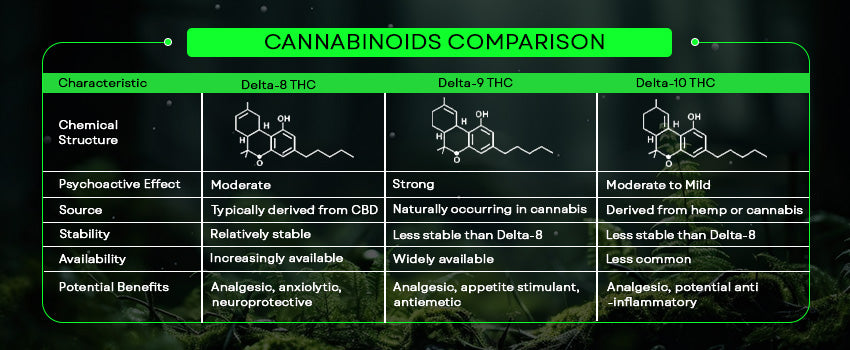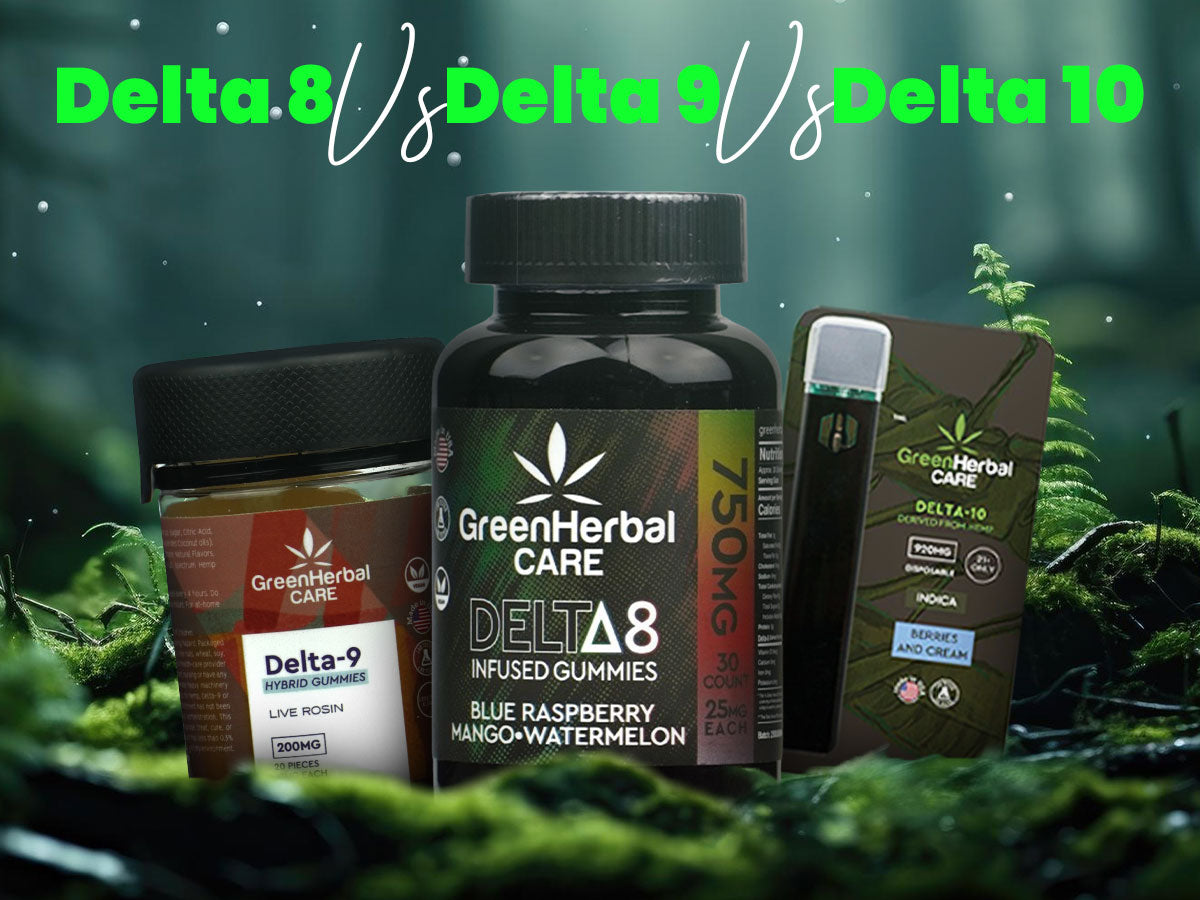THC has been making waves in the cannabis industry. THC, short for tetrahydrocannabinol, is that element in cannabis plants that gets a person high when consumed. It is a naturally occurring chemical compound well-known for its psychoactive effects.
Delta-8, Delta-9, and Delta-10 are all THC variants with different potencies, but not how you may imagine. Delta-9 is the most potent, Delta-8 possesses less potency, while Delta-10 is the mildest. Although they have a similar chemical formula, every compound varies slightly in its molecular structure, causing different therapeutic effects.
Importance of Understanding the Differences
Understanding the differences between the three is essential, whether you are a consumer, policymaker, or healthcare professional. Why? So that you don’t confuse them and end up buying Delta 9 products when looking for the euphoric Delta 10.
The distinctions between the three affect your overall experience because each has a different level of psychoactive effects, therapeutic properties, legal status, and regulatory considerations. Knowing every cannabinoid well can help you make informed decisions.
What is Delta-8 THC?
Delta-8 is a cannabinoid similar to Delta-9 but featuring a slightly different chemical structure. It comes from hemp-derived CBD through a process called isomerization. This hemp-derived Delta-8 is legal in most states.
Effects
Consumers report a subtle euphoria characterized by reduced paranoia and anxiety. Its milder psychoactive effects make it a preferred option for many. Not to mention, it has potential therapeutic benefits like reduced nausea and anxiety, appetite stimulation, and reduced pain and inflammation, adding to its charm.
Some also report experiencing better mental clarity and focus without the sedative effects of Delta-9 THC.
Shop Delta 8 THC Products
Delta-9 THC: The Traditional Player
It is the most well-known cannabinoid. It has a similar chemical structure to Delta-8 but comes directly from cannabis plants.
Delta-9 THC comes under strict regulations because of its intoxicating properties, which, despite its potential therapeutic applications, makes it a little legally complicated as there are concerns about the overuse of various products like Delta-9 live rosin gummies and pre-rolls.
Effects
Delta-9 is THC, the element responsible for enjoying altered perceptions. These effects arise from its interaction with the ECS in the brain, particularly the CB1 receptors.
People love to use it for recreational purposes, to enjoy relaxation and euphoria. However, besides the high, Delta-9 THC also boasts potential therapeutic benefits, such as appetite stimulation, pain relief, and nausea reduction.
Shop Delta 9 THC Products
Exploring Delta-10 THC
Delta-10 THC is a relatively new cannabinoid. It is lesser known but possesses high potential. It is hemp-derived and has a unique chemical structure.
Since it is new, its properties and effects are under investigation. However, emerging studies suggest distinct potential wellness benefits, which even many users report. It is nowhere near as potent as Delta-9 but is less potent than Delta-8, which makes it rapidly grow in popularity.
Effects
Delta-10 THC is perfect for those seeking an uplifting and stimulating high, which is less sedating and more energetic. Users say they use Delta-10 products for recreational purposes, to enjoy good mood, focus, and creativity.
Shop Delta-10 THC Products
Comparing Delta-8, Delta-9, and Delta-10 THC

While chemically similar, all three cannabinoids are distinct and demonstrate different potency levels and psychoactive effects. Delta-9 remains the main focus of regulatory scrutiny because of its intense psychoactive properties, whereas Delta-8 and Delta-10 provide alternative options with potentially diverse therapeutic applications and milder effects.
Legal Considerations and Regulatory Landscape
THC derivatives, like Delta-8, Delta-9, and Delta-10 THC, have ever-changing federal regulations, which make their legality complex.
Although federal law differentiates between marijuana-derived and hemp-derived cannabinoids, state laws vary, further complicating the legal area.
More regulatory changes in the future may affect the accessibility, availability, and legality of THC derivatives, requiring continuous monitoring and compliance.
Signing-Off
Understanding the nuances of these cannabinoids can help make informed decisions. Whether you want to buy Delta-8 pre-rolls, Delta-9 gummies, or Delta-10 carts, you will have better knowledge of the scientific, legal, and regulatory landscapes.
Even though each of these cannabinoids provides potential benefits with their unique properties, there are concerns over their legality, regulations, and safety. Continuous research and regulatory clarity are crucial to maneuver the complexities and exploit the therapeutic potential of THC derivatives.




